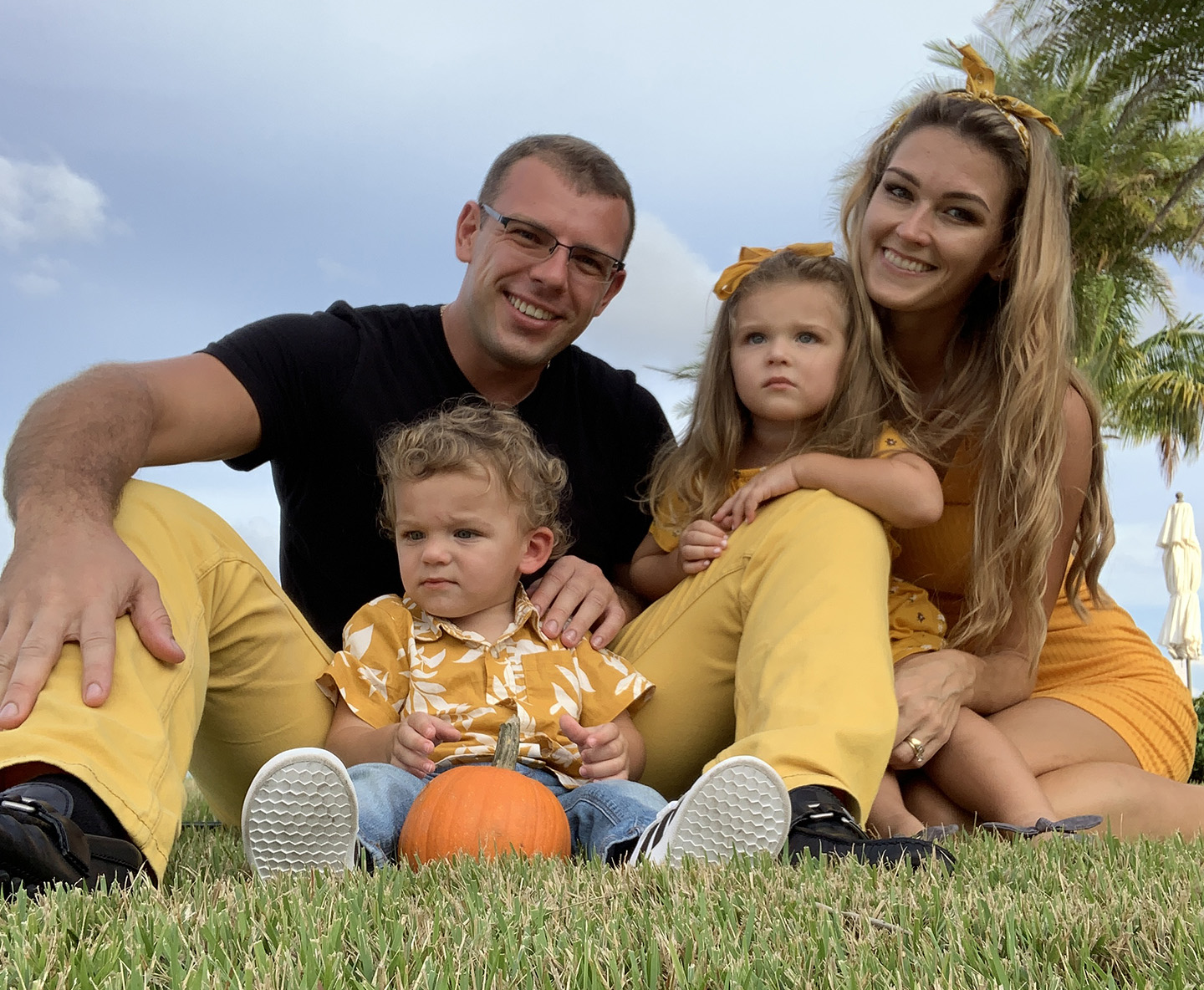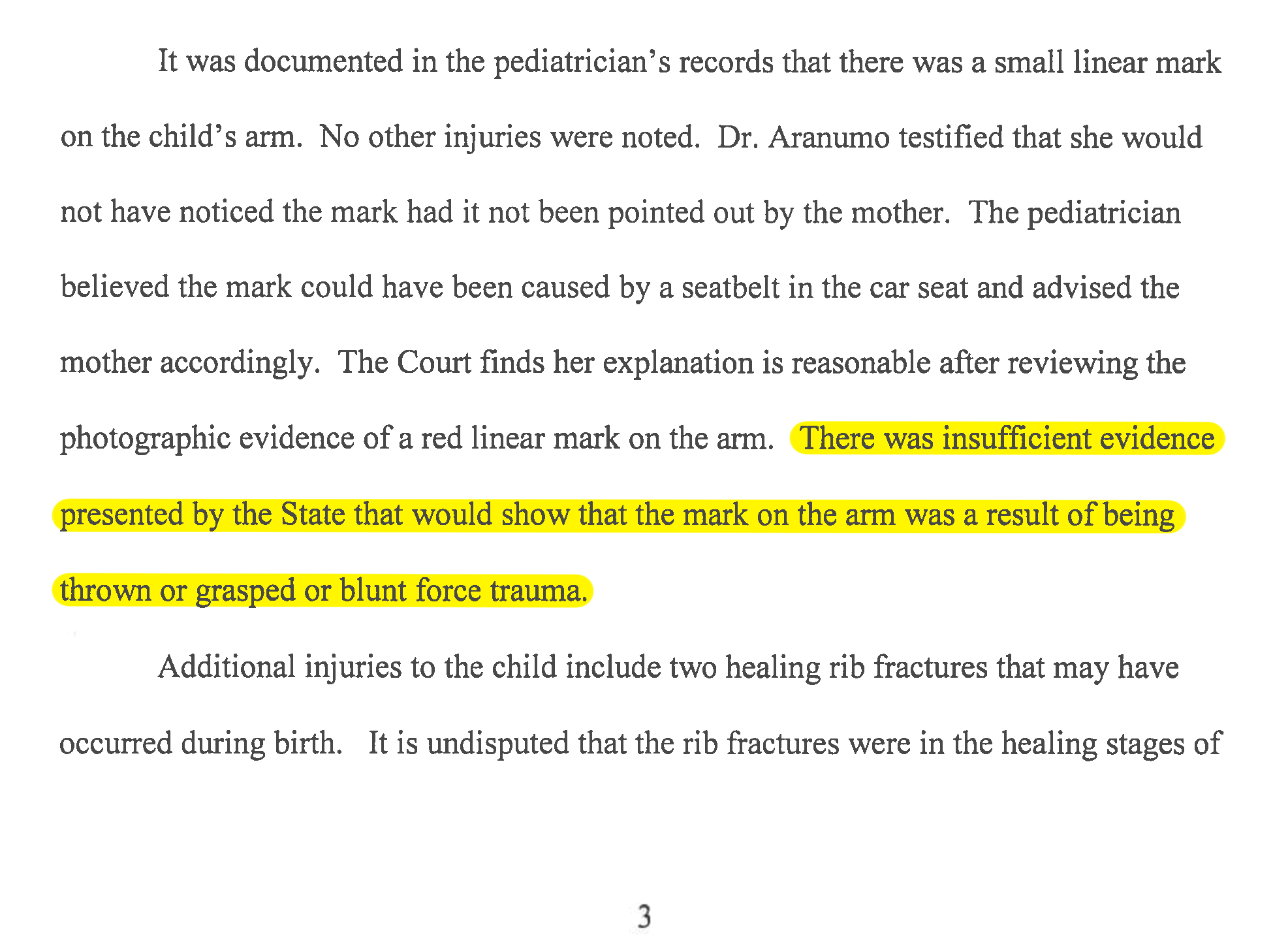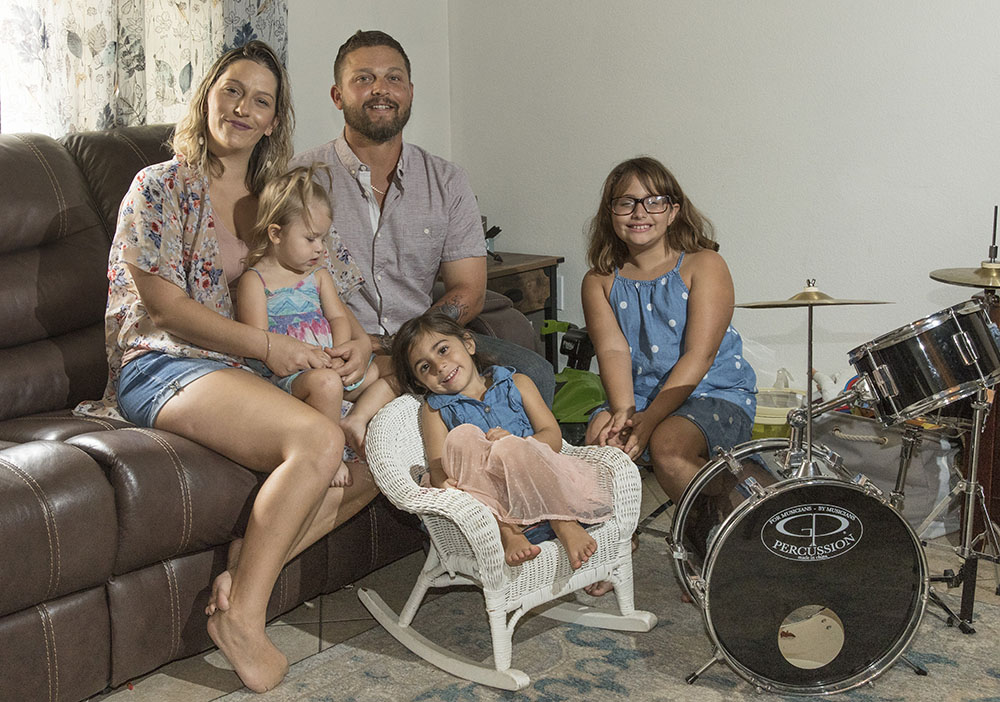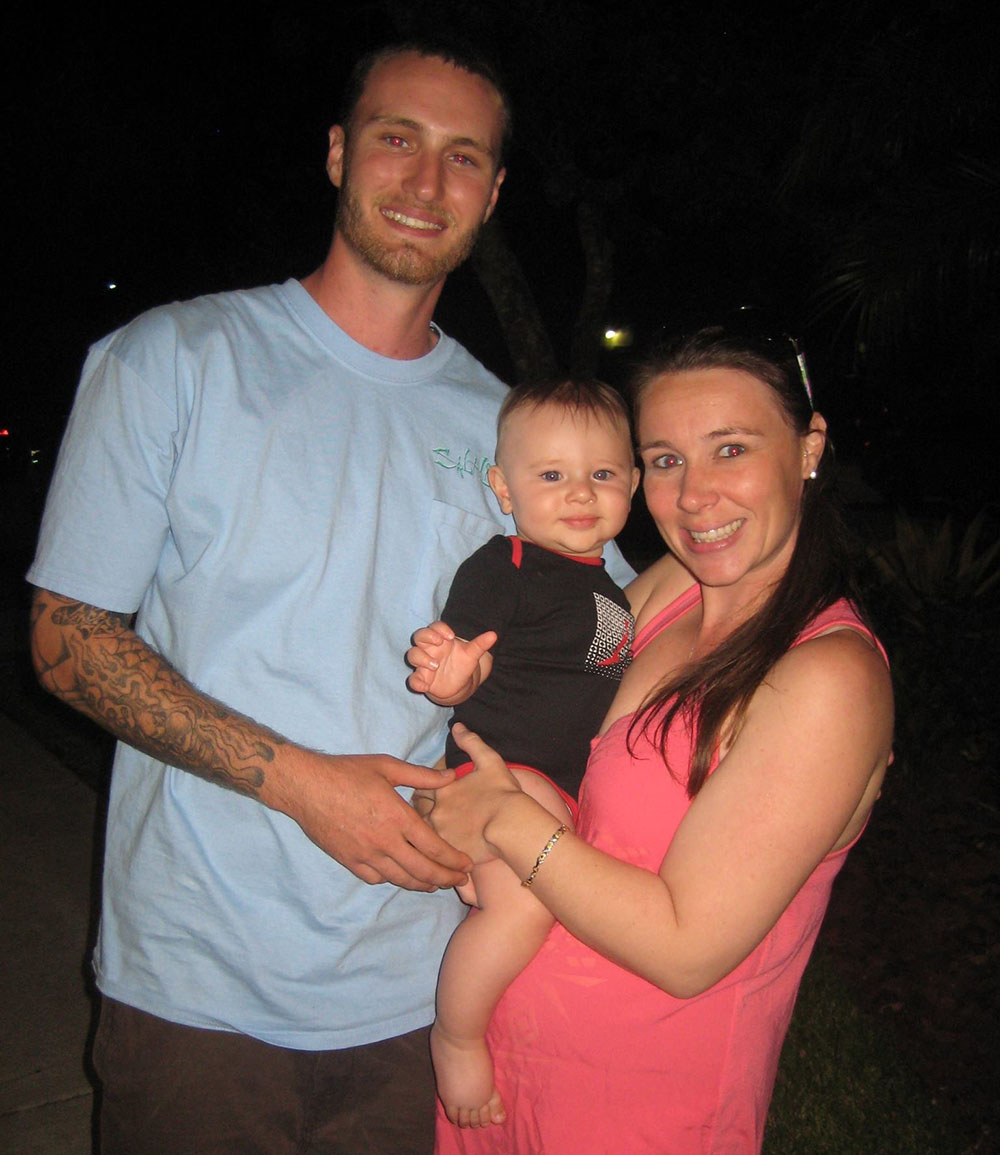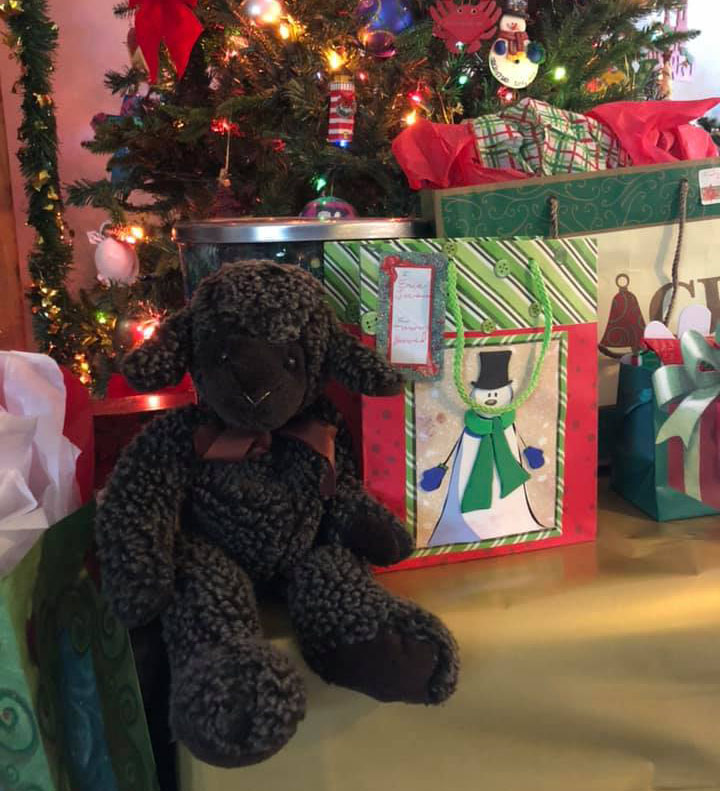Bad medicine
NORTH PORT — Elina went into labor on a scorching day in July.
It would be the second child for her and her husband, immigrants from Ukraine who ran a trucking business in Sarasota County. They picked out Western names: Adele for their rambunctious little girl. William for the child inside her belly, the son they had prayed for.
And so even though Elina wasn’t dilated, even though she was afraid, when the nurses told her to push, Elina pushed.
Vadim and Elina Kushnir celebrated the first birthday of their son William in July. Child abuse pediatrician Dr. Sally Smith accused them of egregiously abusing their son when he was 6 weeks old.Elina Kushnir | Courtesy photo
Less than two hours later, William was born in a torrent of blood, his umbilical cord wrapped around his neck, his face blue. Bruises dotted his face and shoulders. For two weeks, he cried every time he was touched.
Their pediatrician reassured them their son had a traumatic birth and sensitive skin, but was otherwise healthy.
Then, when William was 33 days old, Elina noticed him twitching.
At Johns Hopkins All Children’s Hospital in St. Petersburg, doctors found bleeding in William’s brain and two rib fractures.
The next day, Dr. Sally Smith came to examine him.
Elina and Vadim Kushnir say Smith did not introduce herself or answer the couple’s questions. Instead, she took photos of every part of William’s body, including his genitals and a bruise on his hand from the IV. On her way out, Smith turned to them.
“This is child abuse, and I’m going to prove it,” she said, according to Vadim.
The Kushnirs had never heard of Smith. Few have. But the 61-year-old pediatrician is one of the most powerful figures in the child welfare system along Florida’s Gulf Coast.
As the head of the Pinellas County child protection team, Smith examines virtually every child funneled to All Children’s Hospital with suspicious injuries.
Among prosecutors, her word is like gold.
Torn apart: This story is the first of a multi-part investigation into Florida’s child welfare system coming in January.
Have an experience to share? Please reach out.
Yet for years, defense attorneys, parents and even child welfare employees have complained about Smith’s aggressive interrogation of parents, wondered why she often saw injuries invisible to other doctors and questioned the specificity of her claims.
“It has been flabbergasting to me that she has been given the credence she’s been given by the state attorney’s and the sheriff’s office,” said longtime defense attorney Jennifer Fury.
Doctors and other experts say Smith has a nearly impossible job. Be too cautious and she could send a child home to an abuser. Too aggressive and she could send an innocent to jail.
When reached by phone, Smith denied “any problems with my work” and directed further questions to the Florida Department of Health, which oversees the state’s child protection teams. The department did not respond to multiple requests for comment by phone and email.
The USA TODAY Network reviewed hundreds of Smith’s cases in conjunction with a multi-part investigation into Florida’s child welfare system to be published in coming months. It found more than a dozen instances where charges were dropped, parents were acquitted or caregivers had credible claims of innocence yet suffered irredeemable damage to their lives and reputations.
Beata Kowalski, a 43-year-old mother of two, died by suicide in 2017 after Smith accused her of Munchausen syndrome by proxy — a rare disorder in which a parent fakes a child’s illness for sympathy or gain. Her family members are now suing Smith and All Children’s Hospital for what they said were trumped-up claims.
John Stewart, a Marine Corps veteran, spent 300 days in jail on Smith’s allegation that he killed his girlfriend’s son by throwing him repeatedly against a soft surface. Prosecutors dropped the charges after a neuropathologist contradicted Smith’s findings, according to internal memos.
Tara Brown, 39, underwent three grueling rounds of in vitro fertilization to conceive twins with her physician husband. She was accused of inflicting countless fractures on her 6-week-old infants, but the charges were expunged after another doctor diagnosed them with a rare bone disorder.
“Sally Smith told me that if I didn’t tell them what was wrong, then my children would be put in foster care,” Brown said. “She looked us straight in the eye and said, ‘One of you is lying, one of you abused your children.’”
Dr. Sally Smith testifies about injuries found on a young victim during a murder trial in Sarasota in June 2014.Herald-Tribune | 2014 archive
Parents forced to defend themselves against Smith believe the extraordinary power of so-called child abuse pediatricians, a relatively new specialty, should be subject to more checks and balances.
“You get a second opinion for any major disease,” said Zachary Wierzba, a Sarasota engineer who spent nearly $40,000 fighting charges that he broke his infant son’s femur. “(Smith) took ten minutes. Took a couple pictures, checked his genitals and then left. Ten minutes. But it changes the course of our lives.”
Two weeks after Smith’s cryptic visit, an investigator from the Department of Children and Families escorted the Kushnirs out of the hospital where they had kept sleepless vigil for weeks.
The department then took custody of William and his sister.
In family court, Smith claimed the Kushnirs subjected their son to egregious abuse. She said the mixture of old and new blood in William’s brain proved he had been abused multiple times since birth. “Violent shaking would be one possibility,” she said. “Slamming him on a bed 15 times would be another.”
His rib fractures, she said, were two to three weeks old, caused by someone crushing his chest, according to DCF documents. Smith also claimed a “linear bruise” on William’s arm indicated “high force blunt trauma with a long, linear object.”
To the attorneys representing the Kushnirs, Smith’s opinions came off as outlandish.
They said the “linear bruise” was in fact a small rash that Elina herself had shown to William’s pediatrician at a recent visit. According to court records, the pediatrician testified the rash was likely from the straps of William’s car seat and was so small that she would not have noticed it had Elina not pointed it out.
When defense attorneys asked whether birth trauma could have explained William’s injuries, Smith admitted she had only partially examined the birth records.
Even the imaging findings were in question. California radiologist Dr. Susan Gootnick argued that William’s hemorrhages were re-bleeds from birth trauma, not from shaking. In her report, Gootnick argued William’s rib fractures were closer to six weeks old — right around the time of his birth.
“The prosecution is looking at this case from the outside in when they should be looking at it from the inside out,” Gootnick said.
The judge sided with the Kushnirs, citing the state’s inconsistent testimony and failure to look into the circumstances of William’s birth.
She ordered William and Adele returned to their parents immediately.
“It was a nightmare,” said Vadim. “I understand they have to check it out. But I had a feeling she [Smith] just signed off everybody as child abuse.”
Circuit Judge Rochelle Curley’s order.Kushnir family | Courtesy file
In December 2009, nearly 200 physicians sat for the nation’s first exam in child abuse pediatrics. Smith was one of them.
Physicians in child advocacy lobbied medical boards for a decade to create the new specialty. They argued that research in brain injury, fractures, burns and scars now enabled well-trained doctors to reliably distinguish abuse from accident.
Today, Florida is unique in that virtually all child abuse cases are required to be evaluated by one of the two dozen so-called child protection teams scattered across the state, each helmed by a certified child abuse pediatrician.
Smith, a graduate of the St. Louis University School of Medicine, began working at All Children’s hospital in the ‘90s. She became medical director of the Pinellas County child protection team in 2002 and has held the position ever since.
“She was always kind, she was always what we considered in the industry and the job to be fair, she listened to people,” said Douglas Bonar, a psychologist who worked on the child protection team for two decades. “That’s not saying anything about her medical diagnoses because I’m not qualified to, but she was always good to work with. I respected her medical opinion.”
Smith quickly made a name for herself as a staunch child advocate who was quoted often in local newspapers speaking out against shaken baby syndrome. But as her reputation grew, Smith also became known as a hard-liner who sometimes crossed boundaries while interrogating families.
In hospital lectures, Smith warned that parents and caretakers were often “full-on lying.”
“We have to ask a lot of questions to trip them up,” she said at one presentation in 2015. “Most of the time, they’ve thought of the main lie, but they haven’t thought of all the details. So if you keep asking questions, the story falls apart.”
A clip from a 2015 lecture given by Dr. Sally Smith at All Children’s Hospital in St. Petersburg.All Children’s Hospital | Public
Ashley Finnegan, a 31-year-old mother of three, said Smith’s examination of her daughter left her shaken and crying.
In 2017, Finnegan’s fiancé became angry and hurled a cellphone at their bed, not aware that their 9-week-old daughter was swaddled among the blankets. When the baby cried out and began bleeding from her forehead, the parents rushed her to the ER.
At the hospital, doctors told the couple that Anessa’s skull had been seriously dented above her left eye.
The next day, Smith walked into their hospital room. As with the Kushnirs, she did not introduce herself or explain why she was there, according to Finnegan.
Instead, she said Smith’s first words were: “So what’s the story going to be today?”
According to Finnegan, Smith claimed her story had been inconsistent and that Anessa had multiple fractures from multiple blows. At one point, Finnegan said Smith was yelling “two inches from my face.”
Smith left after a nurse rushed into the room, according to Finnegan. She said the nurse later apologized for Smith’s “bedside manner.”
The next day, Finnegan and her fiancé were arrested. According to the police report, Smith said Anessa’s skull fractures “could not have been caused by a cellphone.”
The Department of Children and Families, which petitioned to take custody of the kids, said in their affidavit that Smith claimed the baby “had two very high force impacts.”
Three months later, prosecutors reversed course. In a surprise move, they declined to pursue charges against Finnegan and offered her fiancé 25 days in jail plus probation if he pleaded no contest to child abuse.
Listen to Finnegan’s fiance, George Gluschenko:
In a memo detailing their reasoning, prosecutors said doctors were “unable to determine with a degree of medical certainty that the victim was struck more than one time.” They also said Smith changed her mind about the plausibility that a cellphone could have caused the injuries.
Finnegan, who says she thought about suing, tried to get a copy of Smith’s medical report from the state. She was told it was confidential.
“We were lucky,” Finnegan said. “What about the people that can’t afford a lawyer? What if I didn’t have that inner strength to fight? The system would have swallowed my children.”
Ashley Finnegan and her fiance George Gluschenko were accused of hitting their infant daughter so hard they dented her skull. Child abuse pediatrician Dr. Sally Smith said she didn’t believe that Gluschenko accidentally hit her with a cell phone.Rod Millington | For USA TODAY Network
Just three years prior, an appeals court had reprimanded Smith for relying too heavily on her own subjective opinion of a parent’s credibility.
In that 2014 case, a Pasco County man said his 6-month-old rocked out of a Bumbo chair and hit his head on the concrete floor.
But Smith testified the baby had no scalp swelling to indicate a fall. She also claimed the father’s story was inconsistent because he told other physicians he witnessed the accident but told her he was in the kitchen. She concluded the boy had been viciously shaken.
The appeals court found several problems with Smith’s testimony: Multiple staff had in fact noted a bump or a bruise on the child’s head. At least one was even documented in Smith’s own notes. And police confirmed that the layout of the home allowed the father to see the fall from the kitchen.
All agreed the child’s injury were consistent with the parents’ version of events, according to court records.
In a rare reversal, the three-judge panel scolded Smith for basing her conclusion “primarily on her assessment of the parents’ credibility, not on the available medical reports.” They ordered the infant returned to his parents.
Dr. Jill Glick, medical director of child protective services at UChicago Medicine, said doctors who burst into exam rooms and accuse parents of abuse are practicing “bad medicine.”
Glick, who was not commenting on Smith specifically, said she gets better results when she introduces herself to parents gently, asks if they have slept and eaten and is honest about why she is there. Sometimes, Glick takes parents out for walks.
When making decisions, Glick makes it a point to consult every specialist in the hospital, from the neurosurgeon to the radiologist.
“We obsess over what we can say with any degree of certainty,” she said. If there is a disagreement, “we’ll put in the record that we had one doctor who disagreed, but 9 out of 10 said this is child abuse.”
Glick says it’s more crucial than ever for child abuse pediatricians to be honest with investigators about their limitations. In recent years, many physicians have softened on injuries once thought to be proof of abuse, like spiral femur fractures or multiple skull fractures.
“I’m intellectually honest that medically we might not be able to answer that question,” Glick said. “And the truth of the matter is, many times we can, and many times we can’t.”
Critics of child abuse pediatricians believe the specialty has become too aligned with prosecutors and police.
Attorney Diane Redleaf, head of the Family Defense Center in Chicago, said parents are often led to believe that child abuse pediatricians are part of the treatment team.
“They are talking to the equivalent of the police without knowing their rights,” Redleaf said. “They’re completely blindsided.”
Redleaf believes child abuse pediatricians should be required to introduce themselves as investigators, not treating physicians, and get consent from parents to perform exams.
In Texas, lawmakers are considering safeguards such as a formal avenue for parents to get second opinions.
Dr. Walter Lambert, assistant director for Florida’s statewide child protection team, said he’s audited Smith’s work at least three times over the past seven years. He called Smith’s reports among the most comprehensive in the state.
“If there was a case that had medical evidence that it was not abuse, she would say it,” Lambert said. “I don’t have any doubt about that at all.”
However, Lambert also acknowledged that the bulk of his audits are focused on ensuring teams are responding to requests for help in a timely manner.
“Presuming what [Smith] says the labs or the hospital records are, which I don’t have access to, I don’t disagree,” he said.
While prosecutors build their case around Smith, defendants are left to search for their own medical expert. Physicians can charge up to $850 per hour to review records, sit for depositions and testify in court. Taking a case to trial easily requires tens of thousands of dollars.
For poor defendants, one of their only options is Dr. Edward Willey, a 75-year-old pathologist with an office three miles down the road from Smith’s.
Willey, a longtime critic of Smith’s, said he has been unsuccessful at recruiting retired doctors or medical examiners to the Justice Administrative Commission’s list of approved child abuse experts. The pay – less than $200 an hour – is a fraction of what private experts can charge.
“You are talking about a problem that is deep and wide in Florida,” said Fury, an attorney who has defended multiple clients against Smith. “We don’t have people out there on that list that are willing to take the piddly pay that the JAC gives experts to examine and testify. Your top-notch people aren’t going to come and do this for next to nothing.”
Accused families are often forced to make gut-wrenching decisions.
Tyler Rosselot was a 21-year-old carnival worker looking for some stability when he moved in with his girlfriend and her 8-month-old son in 2012.
On an unusually warm night in February, after feeding the boy dinner, his girlfriend left to return a movie while Rosselot bathed him and got him ready for bed. Rosselot was making a bottle when he saw the child stiffen and seize.
At the hospital, doctors sucked chunks of pear out of the boy’s airway. Scans revealed brain bleeds and some bleeding behind the eyes, but no skull fractures.
Tyler Rosselot, pictured with his wife Kelli Jordan and kids in 2015 before a judge sentenced him to 10 years in prison for violating his probation. Rosselot was accused by child abuse pediatrician Dr. Sally Smith of shaking and possibly hitting his girlfriend’s child in 2012.Cheryl Rosselot | Courtesy photo
According to police records, Smith told investigators the “only way” the baby could have sustained his injuries was through shaking. And because he fell unconscious in the 20 minutes that his mother was at Publix, police believed the perpetrator was Rosselot.
Investigators pressed Rosselot. Could he have shaken the boy a little too hard? Bumped him while playing? Seen him fall off of something?
“I’ve analyzed every situation in the last week of how this kid could have fell, bumped his head, slipped,” told them. “What I’m telling you is the absolute truth… There was no fall. There was no shake.”
Listen to Rosselot:
Attorneys repeatedly warned Rosselot his charges could carry a 30-year sentence if he lost a trial. “We were told [Smith’s] word is like gold and don’t even try it,” said Rosselot’s stepmother.
But as medical records trickled in, it appeared that Smith claimed to observe multiple symptoms that others hadn’t.
In her deposition, Smith claimed the child was lethargic and not tracking with his eyes, implying a “significant” concussion. But at least three other doctors recorded the boy as “active and vigorous” and tracking well, according to hospital records.
According to deposition transcripts, she also testified that she saw several bruises on the child’s back and “lesions” on his leg in the shape of the hot top of a cigarette lighter — injuries that no other medical professionals noted despite numerous examinations.
Lastly, Smith said the child would have lost consciousness immediately due to damaged blood vessels and nerve fibers in the brain typical of shaken baby syndrome. Yet the radiologist who performed the MRI said there was “no convincing evidence” of so-called shear injury.
Willey, the defense expert, questioned why Smith discounted the pear chunks blocking the baby’s airway. In his rebuttal, Willey said the baby’s symptoms pointed to a loss of oxygen flowing to the brain due to a choking incident, rather than being shaken.
In 2015, less than a month before the scheduled trial date, prosecutors offered Rosselot an unusually lenient deal: If he agreed to plead no contest to child neglect, they would offer 10 years of probation and no prison time.
Rosselot, now married and a father of two, took the deal. He worked long hot hours installing fences, coming home sweaty to rock his children to sleep. But four months later, while on a family kayaking trip in Orlando, his probation officer called.
He had forgotten to ask for permission to leave the county — a violation of his probation.
At a hearing in January 2016, his probation officer testified that she didn’t believe his violation merited jail time. In a letter to the court, a second probation officer who monitored Rosselot during the three years he was out on bond called him “one of the most compliant clients” he ever had.
But Judge John Burns, newly assigned to the case, dismissed their testimony. Instead, he recited portions of Smith’s report from the original arrest affidavit. Declaring that the young father had committed “a crime of extreme violence,” the judge sentenced him to 10 years in prison.
“Making a mistake is ordering a ceviche off a mobile lunch truck,” Burns scolded. “Committing a second degree felony against an infant is criminal conduct.”
In prison, Rosselot has been harassed and stabbed while working on his appeal. If granted a new hearing, his lawyers plan to challenge the validity of Smith’s medical findings. But the process takes years, and he is still waiting.
In every family photo, his relatives include a stuffed black lamb as a symbol they haven’t forgotten him, the “black sheep” of the family.
His stepmother, Cheryl Rosselot, sends the photos through the prison email system: The lamb at his sister’s wedding. The lamb at his daughter’s birthday. The lamb at his son’s preschool graduation.
The kids ask where daddy is, and grandma fibs, even though she knows they won’t buy it for long.
“Daddy loves you,” she says. “But he’s working very hard.”
The stuffed black lamb Rosselot’s family photographs to symbolize him in front of their Christmas tree.Rosselot family | Courtesy photo
USA TODAY Network reporter Lucille Sherman assisted with this report
Do you have an experience with Florida’s child welfare system? We’d like to hear from you.
